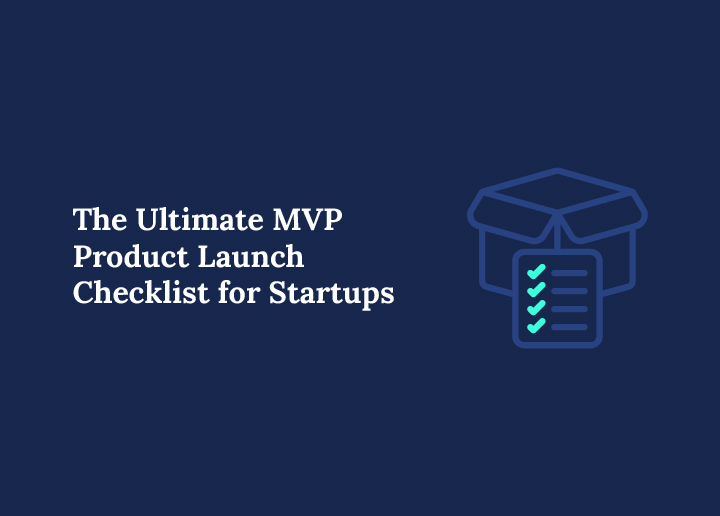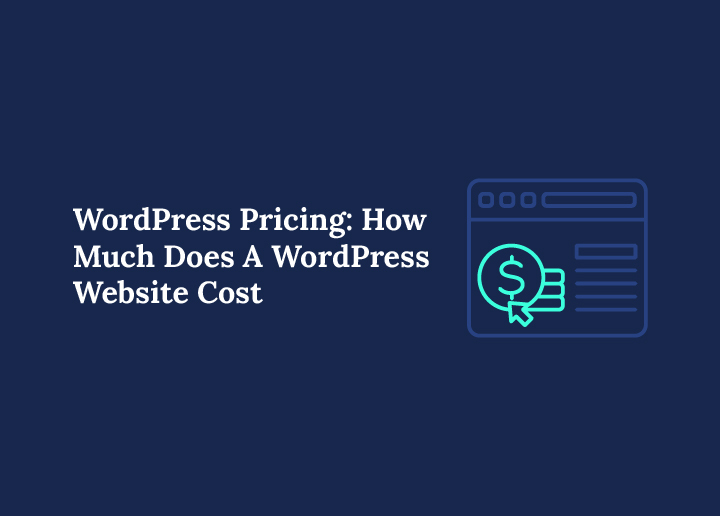If you’re looking to drive more organic traffic to your website, keyword research is an essential step in the process. With the right SEO tools, you can identify which keywords are most likely to bring in quality visitors and optimize your content accordingly. But with so many available options, how do you know which keyword research tool to use? We’ve got you covered, read on to discover the best keyword research tools in 2025, including some free options!
Understanding Keyword Research
Before using any keyword research tool, one must understand the basics of keyword research. This will help you get the most out of the tools and better decide which keywords to target.

What is a Keyword?
A keyword is a word or phrase someone might use to search for something online. For example, someone looking for a new car might search for “best cars 2025” or “car reviews.”
How are Keywords Used?
Keywords are used in search engines like Google and Bing to help people find the websites and information they’re looking for. When you do keyword research, you’re trying to find the right keywords that people are using. This helps you to optimize your website and content to rank well in the search engines.
Why is Keyword Research Necessary?
Keyword research is essential because it helps you understand what people are searching for online. This allows you to create content that is more likely to be found by your target audience. Thereby, leading to more traffic and conversions.
Build a Strong SEO Foundation
Keyword research is just the beginning. Let our experts at Seahawk lay the groundwork for your long-term SEO success.
What to Look for in a Keyword Research Tool
Choosing the right keyword research tool can make a huge difference in how you plan your content and drive traffic. Whether you’re a beginner or an SEO pro, here are the key things you should look out for:
- Ease of Use: Let’s be honest, nobody wants to spend hours just figuring out how a tool works. A good keyword research tool should have a clean interface, simple navigation, and present data in a way that’s easy to understand.
- Accurate Search Volume and Competition Data: This one’s a biggie. The whole point of keyword research is to find terms people are actually searching for, so the data needs to be reliable. Look for tools that offer up-to-date search volume and clearly show how competitive a keyword is.
- Keyword Suggestions and Variations: You may start with one keyword in mind, but a great tool will open the door to dozens of related opportunities. Look for platforms that generate keyword variations, long-tail keywords, question-based suggestions, and even autocomplete data from sources like Google or YouTube.
- SERP Analysis: Understanding what already ranks is just as important as finding the keyword itself. SERP (Search Engine Results Page) analysis shows you who your competition is, what type of content they’re ranking with (blogs, videos, product pages), and how difficult it’ll be to outrank them.
- Integration with Other Tools: Tools that integrate with platforms like Google Analytics, Google Search Console, Surfer SEO, or even AI content writers save time and streamline your entire workflow. It’s all about convenience and keeping everything connected under one roof.
Top Keyword Research Tools for 2025 (Free & Paid)
Here are some of the top keyword research tools that are ideal for both beginner and advanced SEO users.
Google’s Keyword Planner
The Google Keyword Planner is a free tool to help you with your keyword research. It allows you to see how often specific keywords are searched for and estimates the amount of traffic you could get from them.
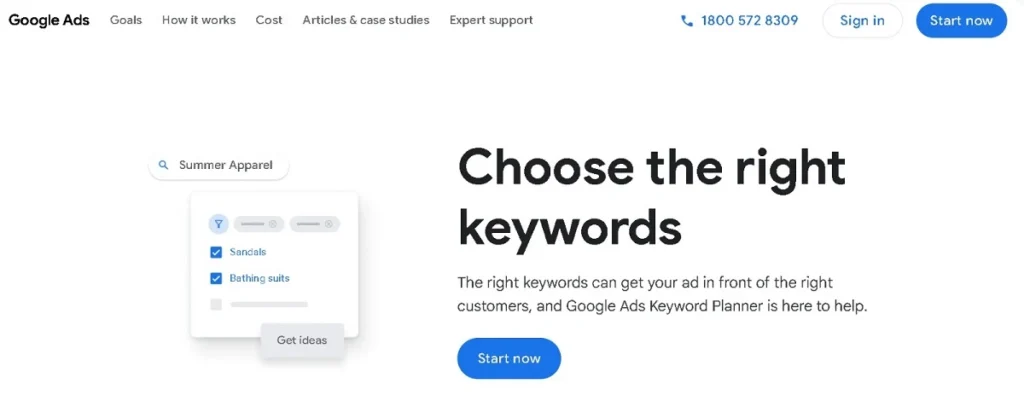
The Google Keyword Planner is especially helpful when creating content and optimizing your website. It can help you identify keywords related to your topic and provide suggestions for other topics you may want to write about. You can also use it to determine how competitive a keyword is. This can let you know if it’s worth targeting.
Using the Google Keyword Planner, you can ensure that your content and website are optimized for the right keywords to appear higher in search engine rankings. This means more people will find what they’re looking for on your site. Thereby, improving your chances of making sales or generating leads.
Read: How to Rank for Difficult Keywords And Dominate Your Market
Google Search Console (GSC)

Google Search Console is another free tool that helps you with keyword research and provides data, such as the number of clicks and impressions you’re receiving for your particular website. Apart from troubleshooting indexing issues with your site, you can use GSC for your keyword research and content planning.
Ubersuggest
Ubersuggest is a well-rounded keyword research tool designed with simplicity in mind. Created by Neil Patel, it’s perfect for beginners, small businesses, and freelancers who want to dip their toes into SEO without getting overwhelmed. The interface is clean and intuitive, and it covers the basics really well, like keyword suggestions, traffic estimations, SEO difficulty, and even backlink data.
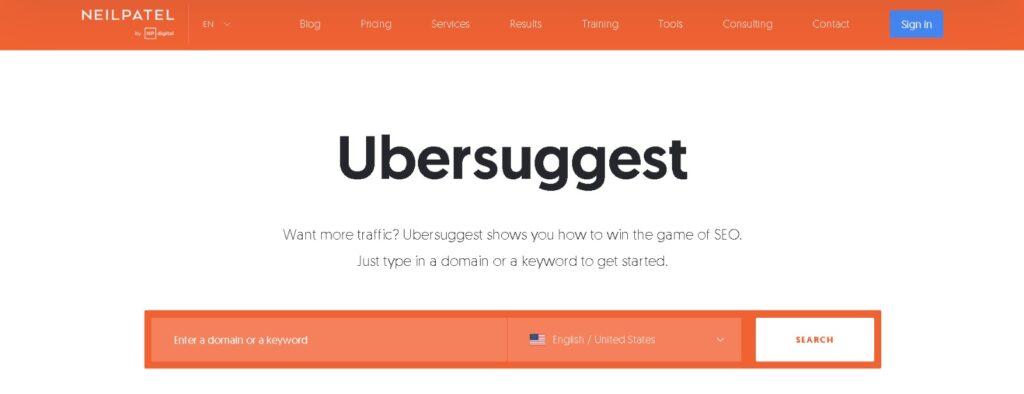
One of its standout features is the Organic Click-Through Rate (CTR) metric, which helps you understand whether searchers are likely to click on the results for a given keyword. Some keywords may have high volume but low CTR due to SERP features like ads, featured snippets, or videos stealing clicks, Ubersuggest gives you that visibility.
Serpstat
Serpstat is a paid keyword research tool that provides detailed information about any keyword, including its search volume, CPC, and competition level.
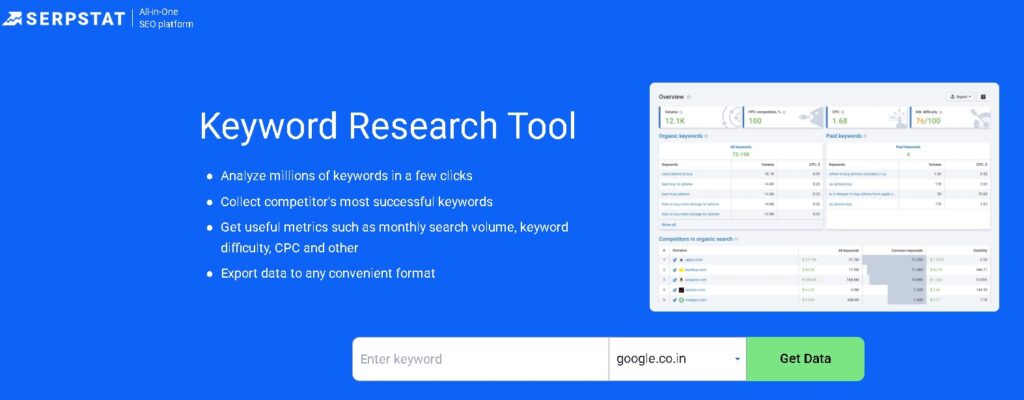
It also provides insights into what kind of content is performing well in search engine rankings and which keywords drive the most website traffic. This information can help create more effective SEO campaigns that increase organic search visibility and improve click-through rates from SERP results.
Serpstat offers comprehensive backlink analysis tools and data about AdWords advertising campaigns. Overall, Serpstat is an incredibly powerful tool for keyword research. It allows users to identify profitable opportunities within their niche or industry quickly. It’s also an excellent way for marketers to stay up-to-date on trends. Additionally, it can help them find new opportunities for growth in their digital marketing efforts.
Read: Top Rank Tracking & Keyword Manager Tools
Moz Keyword Explorer
The Moz Keyword Explorer is a paid keyword research tool that allows you to find new keywords and track their performance over time.

It can be used to find related terms and phrases, uncover untapped opportunities, and understand your customers’ best questions. The Moz Keyword Explorer gives you access to billions of keyword search results from various sources. This includes Google Ads, survey data, market research studies, and more.
With this tool, you can quickly identify high-volume keywords with low competition that will help drive traffic to your website or blog. It also provides insights into which pages on your site rank well for specific keywords so you can optimize those pages further. Combined with its intuitive interface makes it one of the most powerful tools in any SEO arsenal.
AnswerThePublic
AnswerThePublic stands out by showing keyword suggestions in a unique, visual way. Rather than listing keywords in a spreadsheet-style format, it generates a “mind map” of questions that people are searching around for your chosen topic. These include who, what, where, when, why, and how queries, along with comparisons, prepositions, and related terms.
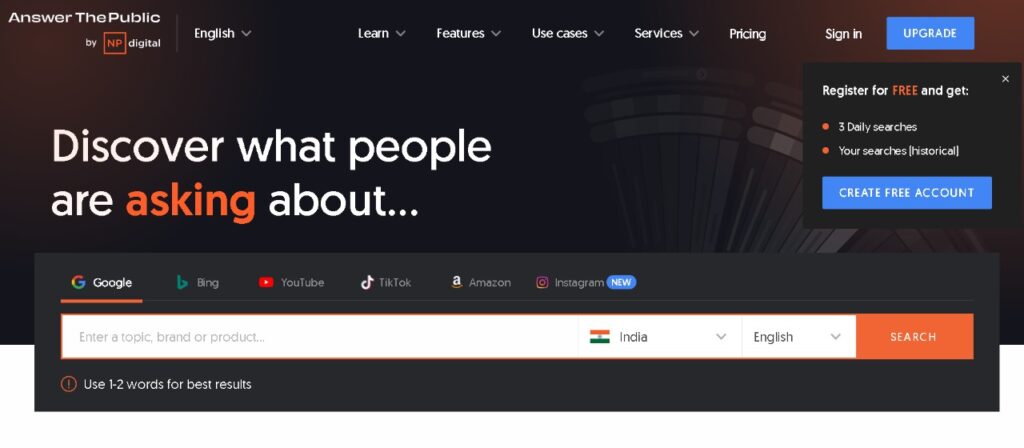
This makes it incredibly powerful for content creators and marketers who want to build blog posts, FAQs, product descriptions, or YouTube videos that directly address what users want to know.
Semrush
Semrush is a paid all-in-one marketing suite that includes a keyword research tool, among other features.
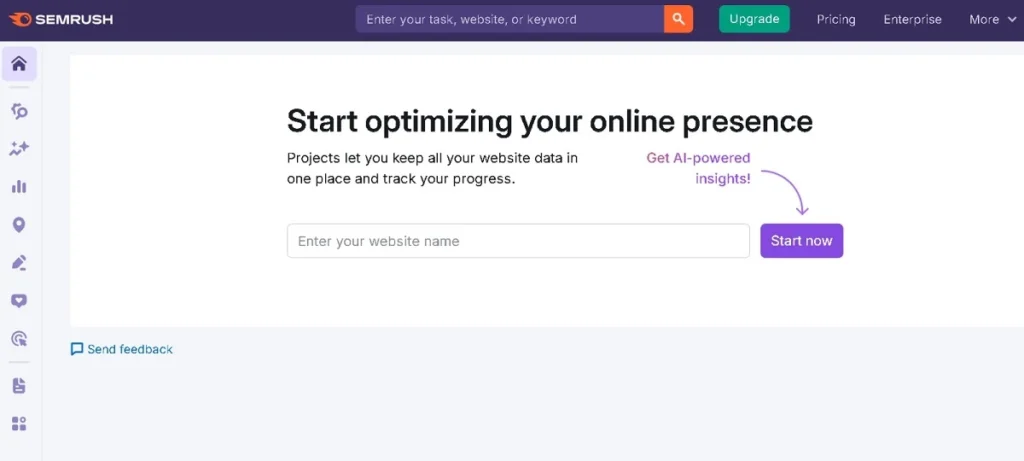
Its keyword research tool includes various features to help you analyze and select the best keywords for your website or blog. You can use it to find out what keywords competitors use and determine the most effective for your efforts. It also provides a detailed analysis of how well specific keywords perform in organic search results. Plus, it provides their estimated cost-per-click (CPC) value.
Semrush offers insights into keyword trends, allowing you to quickly adjust your strategies based on these insights. Finally, with its extensive database of over 40 million domains and 140 million primary keyword terms, Semrush is an excellent tool for finding the right words to bring visitors directly to your site.
Related: SEMrush vs Ahrefs
Free vs Paid Tools: Which Should You Choose?
Free keyword research tools like Ubersuggest (basic version), AnswerThePublic (limited daily searches), or Google Keyword Planner are great starting points, especially for bloggers, small business owners, or marketers on a tight budget. They give you basic data like search volume, keyword suggestions, and sometimes competition level. If you’re doing light SEO or experimenting, free tools can get the job done.
Free tools often come with limited features. You might get outdated data, fewer keyword ideas, or limited access to competitor research. Also, some tools lock critical insights (like keyword difficulty scores or SERP analysis) behind a paywall.
If you’re running an agency, working on serious content strategies, or managing multiple websites, a paid tool is usually worth the investment.
Premium tools like SEMrush, Ahrefs, or LowFruits (Pro) offer real-time data, competitor analysis, historical trends, and content suggestions based on search intent. These can save you hours of research and help you plan smarter campaigns.
Further reading: Your Website SEO Checklist
Conclusion
In today’s digital landscape, choosing the right keyword research tool is more than just a matter of preference, it can directly impact the visibility, traffic, and success of your content. The best keyword research tools in 2025 go beyond search volume; they help you understand search intent, evaluate keyword difficulty, track competitors, and build a content strategy that aligns with user needs.
If you’re a beginner or on a tight budget, tools like Ubersuggest, KeywordTool.io, and Google Keyword Planner provide a strong foundation. For advanced users or agencies managing large campaigns, Ahrefs, Semrush, and Moz offer robust features like backlink analysis, SERP tracking, and competitive intelligence.
Remember, no single tool is perfect. Many professionals use a combination of tools to cross-reference data and uncover deeper insights. Whether you’re creating blog content, managing SEO for a client, or running an eCommerce store, having the right tools can make keyword research faster, smarter, and more effective.
FAQs About Keyword Research Tools
What is the easiest keyword research tool for beginners?
If you’re just starting out, Ubersuggest is one of the best beginner-friendly tools. It’s affordable, simple to navigate, and provides helpful insights like keyword suggestions, search volume, and SEO difficulty.
Google Keyword Planner is another good option, especially if you’re running Google Ads.
What is the easiest keyword research tool for beginners?
If you’re just starting out, Ubersuggest is one of the best beginner-friendly tools. It’s affordable, simple to navigate, and provides helpful insights like keyword suggestions, search volume, and SEO difficulty.
Google Keyword Planner is another good option, especially if you’re running Google Ads.
How many keywords should I target per blog post?
Stick to one primary keyword that aligns with your content goal, and support it with 2–3 related secondary keywords.
For example, if your main keyword is “best vegan protein powder,” you might also include terms like “plant-based protein powder” or “vegan supplement guide.” The key is to write naturally, don’t force keywords in where they don’t fit.
Do I really need a paid tool for keyword research?
Not necessarily. Free tools can be very effective if you’re working on a small project or learning the ropes. Tools like KeywordTool.io, Google Trends, and AnswerThePublic give you tons of ideas and trends without costing a penny.
However, if you need in-depth metrics like backlink profiles, keyword gaps, or historical data, investing in a paid tool like Ahrefs or Semrush can really boost your strategy.

